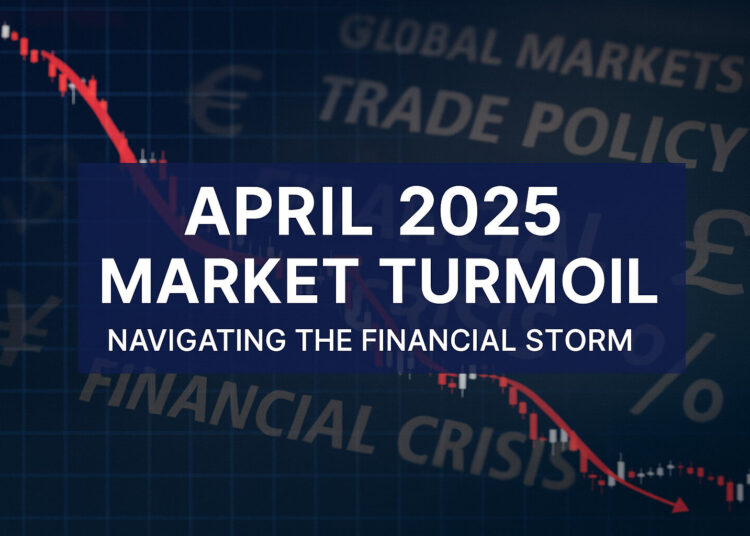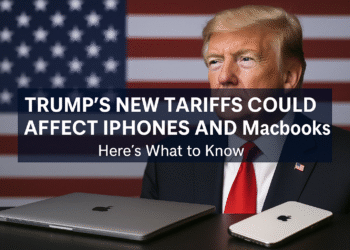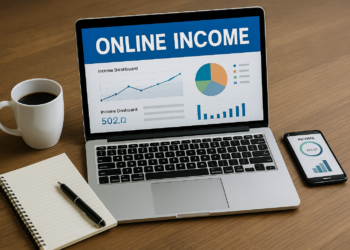Global markets are reeling from recent trade policies, leading to significant volatility. Here’s what you need to know to safeguard your finances.
April 2025 Market Turmoil has sent shockwaves through the financial world, as investors grapple with the economic impact of aggressive trade measures introduced by leading global economies. From steep tariff hikes to shifting currency values, the effects are being felt across every major stock index.
What Sparked the Market Volatility?
The U.S. and China introduced sweeping new tariffs earlier this month in an escalation of ongoing trade disputes. These sudden moves have triggered retaliatory measures and shaken investor confidence globally. Financial analysts are citing concerns over inflation, supply chain instability, and reduced corporate earnings.
According to Bloomberg, the Dow Jones Industrial Average dropped 3.2% within 48 hours of the tariff announcement, with similar declines seen in the S&P 500 and Nasdaq. Asian and European markets mirrored the sell-off, with Hong Kong’s Hang Seng index dropping 2.8% and Germany’s DAX down 3.5%.
What It Means for the Average Investor
Many retail investors are watching their portfolios shrink. Those heavily invested in tech, manufacturing, or international funds are experiencing the steepest declines. Financial advisors are urging caution and encouraging long-term views to ride out the turbulence.
Bond markets, on the other hand, are seeing inflows as investors seek safety. The U.S. 10-year Treasury yield dropped below 3.4% for the first time since early 2024, reflecting a shift toward conservative assets.
How to Protect Your Finances
- Don’t Panic Sell: Volatility is temporary. Evaluate your risk tolerance before making moves.
- Diversify: Consider reallocating a portion of your assets to defensive sectors such as healthcare or consumer staples.
- Review Emergency Savings: Now is a good time to ensure you have 3–6 months of expenses saved in a liquid account.
- Look for Buying Opportunities: If you have cash reserves, market dips can be an opportunity to buy quality stocks at discounted prices.
What to Watch Going Forward
April’s volatility may not be a one-off. Economists are closely monitoring Federal Reserve policy decisions, inflation data, and geopolitical developments. The next earnings season will offer more clarity on how corporations are weathering these shifts.
For everyday investors, staying informed and disciplined will be critical. Subscribe to reputable financial news sources, work with a trusted advisor, and avoid making emotion-based decisions.
Expert Opinions on the Current Climate
Leading economists and financial strategists have been weighing in on the April 2025 market turmoil, emphasizing that while the turbulence is significant, it’s not entirely unexpected. “With election cycles, global conflicts, and inflationary pressure converging, volatility was inevitable,” says Jennifer Langston, a senior economist at Bloomberg Economics.
Experts also highlight that long-term fundamentals remain strong in many sectors, particularly those tied to green energy, AI technology, and infrastructure. “We’re seeing short-term panic, but it’s creating long-term buying opportunities,” notes Mark Evans, chief strategist at Horizon Wealth Partners. “The key is maintaining diversification and resisting emotional decision-making.”
Several hedge funds have already adjusted their positions, reducing exposure to emerging markets and tech-heavy portfolios while increasing allocations to U.S. Treasury bonds, healthcare stocks, and commodities like gold. This strategic shift signals a broader move toward defensive investing while maintaining growth potential in key innovation sectors.
For everyday investors, this is also a chance to revisit your long-term goals. Is your portfolio aligned with your risk tolerance? Do you have exposure to stable, recession-resistant sectors? Rebalancing your investments with a clearer outlook could help reduce anxiety and improve performance. Remember, staying calm and informed is the best strategy when headlines are loud and markets are shaky.
Stay tuned to WbTrends.com for the latest updates on global markets, policy shifts, and how they affect your financial well-being.









